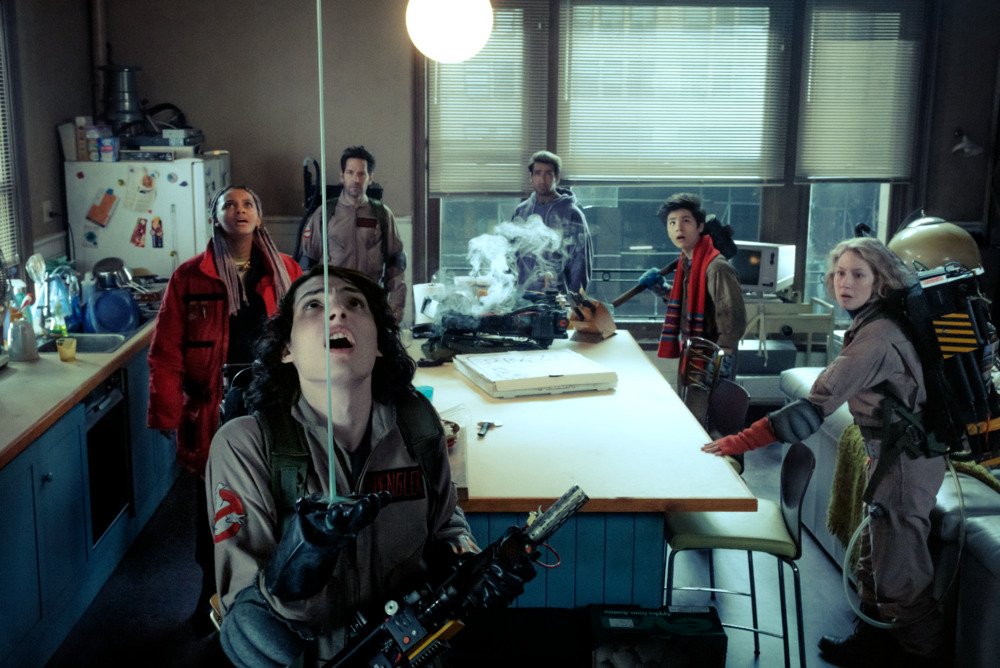he latest Ghostbusters film is a direct sequel to 2021’s Ghostbusters: Afterlife, but the opening chase sequence sets the scene for casuals outside the franchise’s inexplicably dedicated Gen X fanbase. Paul Rudd is the ersatz stepdad to Carrie Coon’s Ghostbusters family, with two grandkids of the departed Harold Ramis’s Egon Spengler, and the whole crew races through midday NYC traffic to capture a giant ghost beast wreaking havoc. Beloved though they are by the city’s populace, the nu-Ghostbusters are chastised by the mayor, played by William Atherton in the first of many returning roles from the 1984 original, and teenage Phoebe, played by Mckenna Grace, is prohibited from busting ghosts until she’s an adult. Grace is charming despite the material, playing the peculiar arc of a teen who’s rebelling against not being allowed into the family business as child labor and caught in a chaste same-sex ghost romance.
Dan Aykroyd brings his real-life enthusiasm for the paranormal to Ray Stantz, now the owner of a magic and antiquities shop. The once-and-future-’buster buys a cursed artifact from Kumail Nanjiani’s character—a burnout pawning family heirlooms—unleashing a centuries-old, overly serious mythological threat with the icy monochromatic aesthetic of mid-’10s fantasy chasing Game of Thrones. Patton Oswalt brings a similar sparkle to his few scenes as a librarian and paranormal expert, while James Acaster channels some of Bill Murray’s irony as a droll scientist in the ever-expanding Ghostbusters lab. The younger generation, like Celeste O’Connor and Stranger Things’s Finn Wolfhard, aren’t given much to do in comparison, though Logan Kim’s Podcast has a few surprising bits of physical comedy. The parts, focus grouped though they may be, don’t add up to a movie worth the two-hour runtime, but it’s a fun copy of a copy of Spielbergian family sci-fi adventure.
The film’s threat of environmental collapse hints at interesting intergenerational themes, like when Annie Potts, surveying a piece of public safety technology strained to its limits by neglect, says, “It was the 80s, we weren’t thinking about the future.” The emotional highpoint is Aykroyd and Ernie Hudson in a brief, tender dialogue about how to spend their retirement years, age visible on their faces. But by the climax, the four old-timers, even Murray, are straining to shove the ghosts back in the same old machine, and Aykroyd and Hudson share a chuckle about their “golden years.”
Originally published in Chicago Reader.
